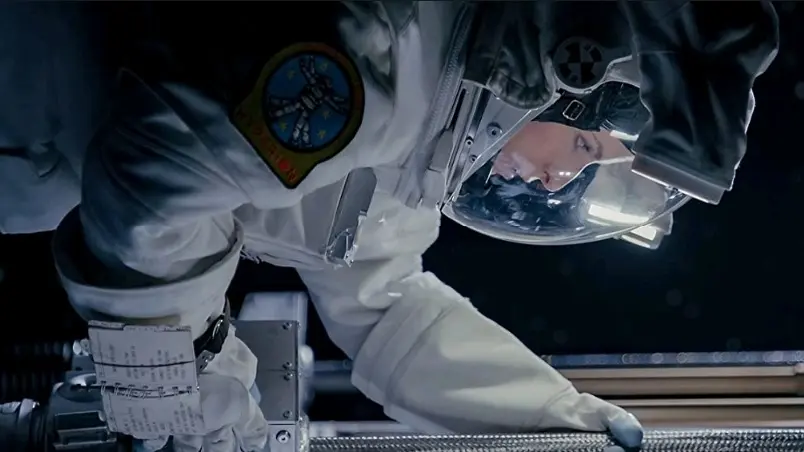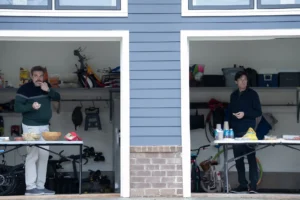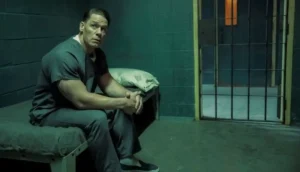Summary
Stowaway is such a flat experience that it made me ponder whether the world is round after all.
I’m not sure if Joe Penna’s (Arctic) film is the result of the current pandemic. Will the next year be nothing but bottleneck film shoots with a limited cast of three or four actors? One or two decent stars with a few good-looking television people to make the experience passable? You can almost feel the studio personnel rushing to the development hell where the scripts have been collecting dust for decades, as they scramble to fill their calendars. I’m not sure when Stowaway was shot, but it’s a micro cast; the special effects pale in comparison with other space odysseys and a script that plays it safer than I think any I have ever seen. It suggests that this will be the new trend. Don’t worry, though, it still has some maddening plot holes along the way.
It’s the same old trope. A mission is headed to outer space by a company called Hyperion, a private company that is expanding its outreach, to say the least. This time a three-man crew is “John Smithing” it there on a trip that will take two years. A colony is already there. Commander Marina Barnett (Toni Collette) is headed on her third and final trek to the big red planet. Along with her is a young physician, Zoe Levenson (Anna Kendrick). She is a Yale graduate who spends every valuable second throwing in the face of her Harvard alum mission mate, David Kim (Daniel Dae Kim). He is the ship’s biologist who is taking his microgreens and algae to Mars to expand on his work and write a few papers along the way.
However, the mission hits a speed bump on the road to the cosmos. For some reason, a man has been tucked inside a compartment. He falls from the ceiling, on top of Barnett. His name is Michael Adams (Wynonna Earp‘s Shamier Anderson), AKA, the Stowaway. No one seems to know how he got on board. No one seems to know how he survived the takeoff and flight. Finally, no one seems to know what to do with him.
The main problem with Stowaway is the frustratingly inert script. It refuses to move on from Adams’s unlikeliness, forcing the audience to ponder how underwhelming and, at the same time, outlandish it really is. There is no explanation on how he happened to get in a compartment that was nowhere near his post when the ship was getting ready for takeoff, nor is there a reason for his survival without an oxygen mask in the first place.
The film flounders with its tepid story and never bothers to establish its characters in any three-dimensional way. Yes, Kendrick’s Zoe is a plucky physician who isn’t heartless. Wait! Don’t forget she loves Yale! Never forget David’s love for his school, Harvard! Even then, this joke lasts for two beats, and you know nothing about the original crew or what motivates them. Nearly all the characters are undeveloped. The characters have as much well-rounded, three-dimensional depth as Wilson the Volleyball in Castaway.
The plot is a fickle one as well. Adams just happens to be in the compartment that supports the oxygen distribution on the ship. His harness is wrapped around the CDRA (Carbon Dioxide Removal Assembly), and when he falls, he destroys it. This involves the plot of the film, and after watching enough space-related films and documentaries in my time, I asked myself this: No one thought to have a backup piece of equipment that helps filter out carbon dioxide in a spaceship that has limited oxygen in the first place?
Even Anderson’s character is boxed by a script that should be the main selling point: the mystery of why he is there. He should represent an underlying theme. Let me save you the time — he does not. You learn he is the caretaker of his sister and he was in a house fire as a young man, but does that establish anything interesting to chew on? Let me save you time again — it does not.
You may argue that Stowaway deliberately underwhelms for an emotional payoff at the end of the film. The problem is that it never establishes enough of an emotional response (love or hate) for its characters or takes you on a journey that fully invests you in the story. It completely mishandles any chance of a morality play by playing it too safe. It’s such a flat experience that it made me ponder whether the world is round after all.
Wilson, we have a problem.




